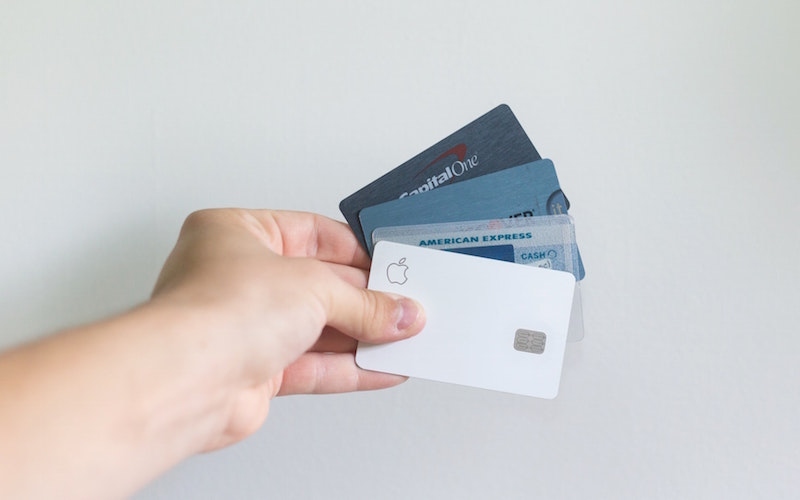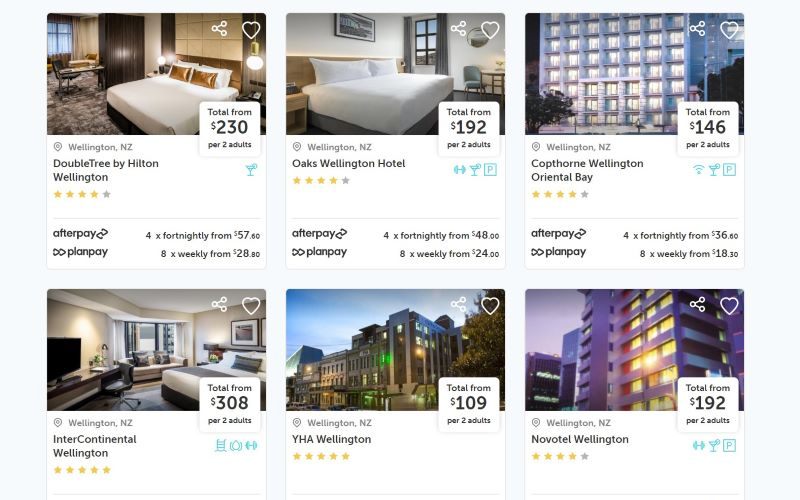This article was first published 22 September 2020. Savings.com.au will endeavour to keep readers on top of any changes in the BNPL space.
- Should BNPL be credit regulated?
- The 'Wagyu and shiraz' argument
- Would regulation kill BNPL?
- Would retailers suffer as a consequence?
- Big banks step into the BNPL game
The popularity of buy now, pay later (BNPL) platforms is quite pronounced, and one only needs to look at the recent share price performance of platforms such as Afterpay and Zip, as an example of the hype. The premise is simple - they allow consumers to break down purchases into more manageable bite-sized portions and pay it off over a set period of time. Say you buy a couch - rather than spend $2,000 in one hit, a BNPL provider might allow you to split it into four fortnightly payments of $500. Easy, right?
If you make all the payments on time, you’re happy because you’ve paid off your debt without accruing interest or fees. The BNPL provider is also happy because the debt has been repaid and it gets a small margin of the sale paid to it from the retailer. But what if the consumer fails to meet the repayments on time? They are then often slugged with late fees and other penalties. This has consumer groups worried, calling for the industry to be regulated under credit protection laws in a similar vein to credit cards. That would require the industry to mandate responsible lending criteria, hardship negotiations and more. However, would such regulation hamper an otherwise innovative industry?
Need somewhere to store cash and earn interest? The table below features introductory and ongoing savings accounts with some of the highest interest rates on the market.

- Bonus variable rate for the first 4 months on balances up to $250k and high variable ongoing rates.
- No fees and no monthly requirements to earn interest.
- Easily open an account online in 3 minutes.
Should BNPL be credit regulated?
A recent Senate Inquiry in early September 2020 essentially concluded that BNPL platforms can self regulate, rather than be mandated to regulate. The argument was that a ‘one size fits all’ approach to an otherwise innovative industry was not the way forward.
However, consumer groups are calling for the sector to be regulated under the Australian Securities and Investment Commission’s (ASIC) National Consumer Credit Protection Act 2009, just like home loans and other credit products.
Financial Counselling Australia CEO Fiona Guthrie told Savings.com.au in July that the industry needs to be on an “even playing field”, like credit cards, which have experienced a fall in use over the past decade.
“Buy now pay later schemes are not regulated under the National Credit Act but they should be,” she said.
“If it looks like a duck, and quacks like a duck, it is a duck. BNPL is credit and should be regulated like other credit products.
“Because BNPL providers are not regulated, and thus not licensed under the Credit Act, they don’t have to check if you can afford the credit, don't have legal obligations to offer hardship arrangements and don’t have to join the dispute resolution scheme - the Australian Financial Complaints Authority.
“While it is good that AfterPay has voluntarily joined AFCA, this isn’t enough if the other protections under the Credit Act are not in place.”
Consumer Action Law Centre policy officer Patrick Sloyan also echoed these statements.
“Afterpay charged their customers $46 million in late fees in the 2019 financial year. This is a serious red flag,” he told Savings.com.au in July.
“Buy now, pay later companies are exploiting a loophole in the law which means they not regulated like other credit providers.
“They don’t need to comply with important consumer protections like responsible lending, EDR [external dispute resolution] membership or offer hardship to customers that might be struggling to make repayments on time.
“AFIA’s [Australian Financial Industry Association] draft BNPL industry code goes nowhere near far enough, and is being used to deflect fair criticism about the business model and fend off proper of regulation.”
Both Ms Guthrie’s and Mr Sloyan’s comments came after Webjet teamed up with Afterpay for booking flights and travel.
“The cost of flights are expensive and it’s concerning that companies like Afterpay and Webjet can load people with up to $2,000 of debt and have no obligations to assess whether someone can actually pay it back,” Mr Sloyan said.
However, it’s important to note that Afterpay is not being singled out here, it is merely the biggest in an industry worth a billion dollars in Australia alone, according to a recent IBISWorld report.
‘Wagyu and shiraz’ argument
The fact that borrowers can pare down their expenses in anticipation of servicing a home loan has recently come to be known as the ‘wagyu and shiraz’ argument, made famous in 2019 by Federal Court Justice Nye Perram.
“I may eat Wagyu beef everyday washed down with the finest shiraz but, if I really want my new home, I can make do on much more modest fare” - Justice Perram.
The phrase was used in the context of the Australian Securities and Investment Commission’s (ASIC) case against Westpac’s responsible lending measures, in which ASIC lost its appeal earlier in 2020.
Toby Blyth, partner at law firm Colin Biggers & Paisley, said the ‘Wagyu and shiraz’ argument applies to buy now, pay later schemes, too.
“If you eat too much ice cream, it'll be a problem. But ice cream is not a bad thing by itself, so I think the criticisms of buy now, pay later - when you strip back the posturing - often tends to be that people are using it too much without a thought to the impact in their future credit history,” he said.
“Whether that justifies bringing it into the credit regime, though, is another thing entirely.
“There's an awful lot of people who do find the buy now, pay later structure useful - it serves a need for consumers.”
A recent report by BNPL platform Openpay revealed 60% of Australians using BNPL services are using it to take care of essential spending such as healthcare and car repairs.
The report also highlighted that more than half of respondents said spending on luxuries is on the backburner during COVID-19 uncertainty.
Regardless, if the industry yielded to calls from consumer groups or ASIC clamped down on it, what would the BNPL industry look like?
Would regulation kill BNPL?
Naturally, BNPL players are hesitant for reform, saying regulation could hamper competition and make it harder for consumers to access the platforms.
CEO of Openpay Michael Eidel told Savings.com.au increased regulation is not necessarily the solution.
“While Openpay will always ensure it complies with any regulatory changes, additional broad-based regulation could stifle innovation and growth, and therefore reduce the number of low or no cost options available to Aussie consumers when they pay for goods and services,” Mr Eidel said.
“Like our industry peers, Openpay is already subject to significant regulation and we do not believe additional regulation and a one-size-fits-all-approach would be an effective or appropriate outcome.
“Openpay is a strong advocate for self-regulation to maintain responsible consumer protections while also encouraging innovation.”
Mr Blyth said regulation would do less harm to existing players in the market, and instead potentially stymie new players.
“It [credit regulation] would be an issue for some of the smaller ones who are looking for funding and the sorts of things that are necessary for stock market funding,” he said.
“Smaller new competitors and innovators might get squashed now by that. So that is the problem the Government has to juggle.”
However, the larger players might be able to wade through the new rules, according to Mr Blyth.
“Markets tend to be better than governments at working out which innovation is really useful, because lots and lots of people make individual decisions about their own [circumstances],” he said.
“If it [BNPL] became regulated ... then the first movers – Afterpay’s a classic example - could go out tomorrow and get themselves a licence.
“I don't think the Government or any regulator wants to squash innovative financial products [BNPL] completely, and there might be a risk if you roll it into the general regime that the whole thing gets extinguished and someone else does it anyway overseas.”
Would retailers suffer as a consequence?
If a customer pays off their BNPL debt on time, they are unlikely to face extra fees, save for some platforms charging a monthly account keeping fee. However, BNPL platforms still need to make money, and the way they do this is through charging fees to participating merchants.
For example, Afterpay charges 30 cents plus 3-7% commission on the sale, depending on the value of the sale, while Zip charges merchants slightly less at 15 cents plus 2-4% commission. On a $2,000 purchase, this could cost the merchant more than $100.
If regulated, there could be higher barriers for BNPL usage, however it’s important to note the Reserve Bank has banned retailers charging extra to account for these fees.
Mr Blyth said retailers are “hungry” for any sort of business and would absorb any extra costs to secure business.
“I think as we see smaller businesses fall away with the current government regulations you will get a smaller pool of much larger retailers, even if they present different brands to the public,” he said.
Big banks enter the chat
To provide an alternative to BNPL, big banks CommBank and NAB have both introduced ‘zero interest’ credit cards. Instead, these cards charge a monthly fee dependent on the balance of the card.
For example, NAB’s fee breakdown is as follows:
-
$1,000 credit limit: Pay a minimum $35 per month ($10 monthly fee included in your balance)
-
$2,000 credit limit: Pay a minimum $75 per month ($15 monthly fee included in your balance)
-
$3,000 credit limit: Pay a minimum $110 per month ($20 monthly fee included in your balance)
Like BNPL, there is technically nothing charged if you pay off before the allotted date. However, these offerings are distinct from BNPL in that the cards can be used anywhere Mastercard or Visa are accepted, and have a continuous line of credit.
However, as with any credit item, the sooner you pay off the balance, the less you’ll pay. If you spent $1,000 on the $3,000 limit option and took 12 months to repay it, you’d be charged $240 in fees, or an effective interest rate of 41.70% - about double the rate of many normal credit cards.
Mr Blyth said the sheer scale of the big banks could squash competition in the BNPL sector if they decided to enter the space.
“That's the risk for Afterpay, in that platforms like Afterpay have a first mover advantage, but not much of one, so it's very easy for another firm like a bank to replicate their model,” he said.
“The banks [have] access to finance in a way that would just dwarf Afterpay’s access to finance and cash flow.
“They may not have the first mover advantage, but they have the size advantage.”
Savings.com.au's two cents
No matter which way you swing it, it’s hard to say whether regulation would kill BNPL as we know it. Existing players, particularly the bigger guys such as Afterpay and Zip might be able to navigate extra hurdles, but new platforms might falter at the finish line. Additionally, any new regulations could make it more favourable for bigger players, and even banks to enter the game, concentrating the power base. We have started to see this with the big banks' foray into ‘no interest’ credit cards, which in practice mimic BNPL platforms to a degree.
While groups calling for credit regulation have justified arguments, regulations often have unintended side effects. With retail trade on the decline in general, additional hurdles to get customers onto BNPL could affect small businesses' bottom lines and turn off innovative new platforms from entering the market. BNPL is thriving at the moment, and has recently convinced a Senate Inquiry they’re fine without regulation, but watch this space if there’s a crackdown.
Photo by Moritz Mentges on Unsplash





.jpg)

 Harry O'Sullivan
Harry O'Sullivan
 Brooke Cooper
Brooke Cooper

 Harrison Astbury
Harrison Astbury
 Denise Raward
Denise Raward

